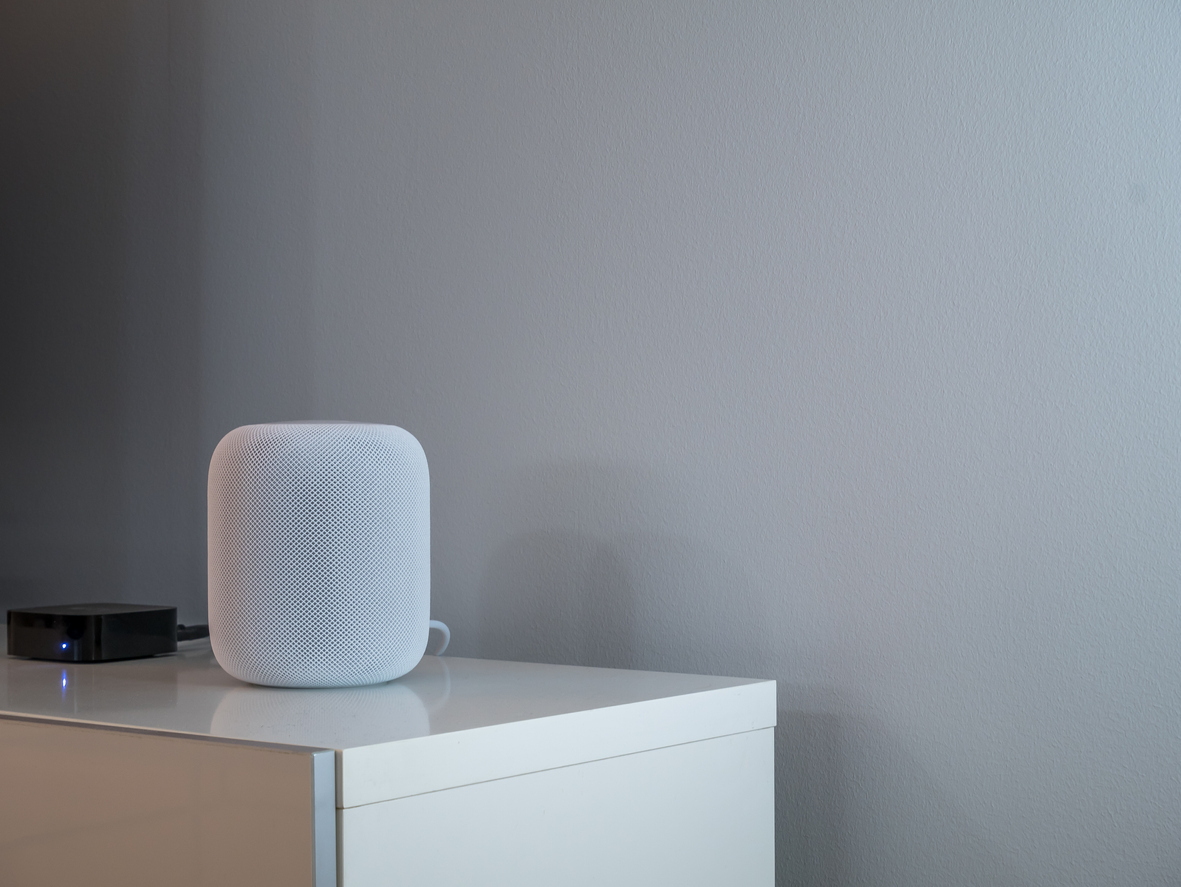
Are Smart Devices Listening to My Conversations?
By George Caspar On 11/11/2019
The widespread deployment of wi-fi has created a reality where smart devices are constantly listening to their user's conversations as well as to the discussions of other people speaking within the vicinity of the smart device. This reality is not immediately apparent to most users of smart devices or the other people in their vicinity. At the same time, there seems to be an implicit contract whereby users of smart devices agree to this monitoring in exchange for all the services that a smart device provides. However, the exact terms of this implicit contract have yet to be clearly defined.
The use of "wake up words" such as "Hey Siri" or "Alexa" prove that these devices are continually listening because, in order for the "wake up word" to wake up the smart device, the smart device must be first listening for the word in order to wake up in response to it. Accordingly, smart devices must be listening all the time, at least to a certain degree.
Assuming smart devices are constantly listening to their users, it is reasonable to ask if these listening smart devices are also recording the sounds that they pick up? Surprisingly, tech companies admit that everything their smart devices hear they record. They claim, however, that smart devices record sound in order to improve the algorithm running the device. Regardless of the reason, the idea that conversations are being recorded seems to exceed most smart device user's conception of their implicit contract with the maker of the smart device.
Many people claim that social media platforms such as Facebook use a smart device's ability to hear the speech of their users to direct relevant advertisements to them. Facebook has explicitly denied this allegation. However, many people are suspicious of this denial based on their personal experience with the social media platform. Interestingly, Amazon employs people to listen to conversations picked up by Amazon Echo (also known as Alexa). This seems to be an even greater violation of the implicit contract. For it is one thing to have a computer monitoring a smart device's user in order to improve an algorithm or even to direct advertising. It is quite another to have an actual human being listening to a presumably private communication over a smart device in their own home.
The issue of smart devices listening and recording the sounds made by their users without their user's consent has started to catch the attention of federal lawmakers. Representative Seth Moulton of Massachusetts has submitted a bill called the "Automatic Listening Exploitation Act" that would fine a tech company $40,000 for every recording made by a smart device without its user's consent. The proposed legislation also permits the user to require the tech company to delete the record. At present, it is unclear whether this bill will become a law, but its existence at least suggests that this issue is growing in importance.
In the meantime, while smart devices seemingly have free reign to listen to and record the sounds their users make without their permission, it might be helpful to know how to disable this function should the user wish to do so. The following is a step by step guide for this purpose with certain devices.
How to Disable the Listening Capability of a Smart Device
iPhone Apps can be disabled by:
- Go to Settings
- Tap Privacy
- Tap Microphone
- You will then be given a list of your apps with a slide button that can be used to disable the microphone function.
iPhone Siri can be disabled by:
- Go to Settings
- Tap Siri & Search
- You will then be given a list of Siri functions with a slide button that can be used to turn off the functions for "Hey Siri," "Press Side Button for Siri," and "Allow Siri When Locked."
ANDROID Apps can be disabled by:
- Go to the Apps & Notifications screen
- Go to App Permissions
- You will then be given a list of apps with the ability to turn off the microphone access associated with it.
ALEXA requests can be heard and possibly deleted by:
- Access the Alexa app
- Go to Settings
- Go to History.
Note: Amazon claims that deleting these recordings may negatively impact the quality of its user's Alexa experience because these recordings are used to improve Alexa's responses.
In the alternative, you can also manually turn off the microphone on the device itself until you're ready to make a request. Of course, this will defeat the spontaneity of making a request, which seems to be integral to the experience of using this type of smart device.
GOOGLE HOME recordings can be deleted by:
- Log on to your Google account
- Click on your profile picture
- Click Manage Accounts
- Click Google Activity Controls
- Click Manage Activity
- From here you will be allowed to mute the microphone
As the reader might gather, it is not immediately apparent as to how to disable the listening capabilities of the smart devices. In the same respect, it is not immediately evident that smart devices are listening to their users and recording the sounds that they make in the first place. Regardless of whether these recordings are made to make the experience of the device more seamless as the tech companies contend, it is, at the very least suspicious that they are not transparent about this aspect of their devices. This provides all the more reason to make explicit the terms of the implicit contract between the smart devices and their users.
Tagged with: alexa, google, facebook, smartdevices, advertising, targeted
Blog Disclaimer: The opinions expressed within these blog posts are solely the author’s and do not reflect the opinions and beliefs of the Certitrek, CWNP or its affiliates.



